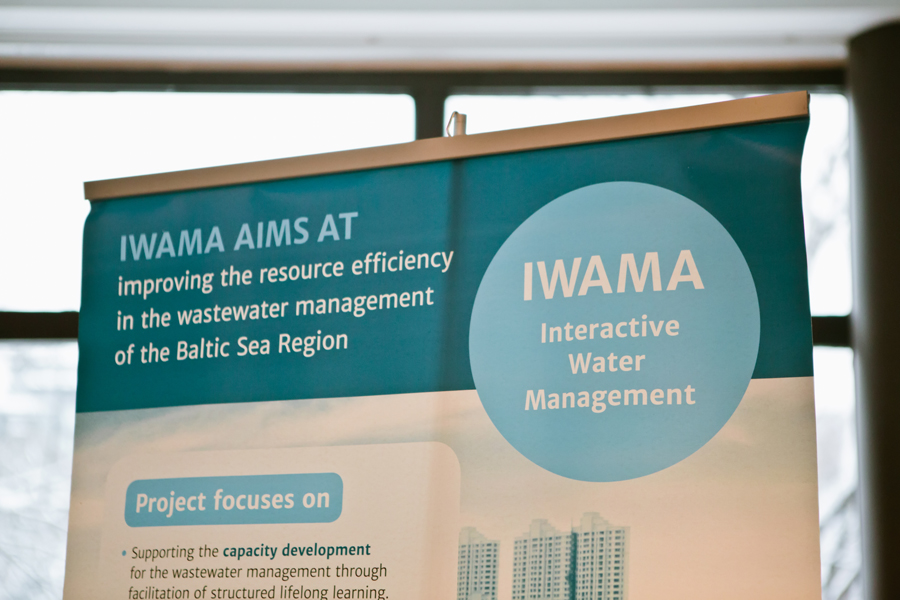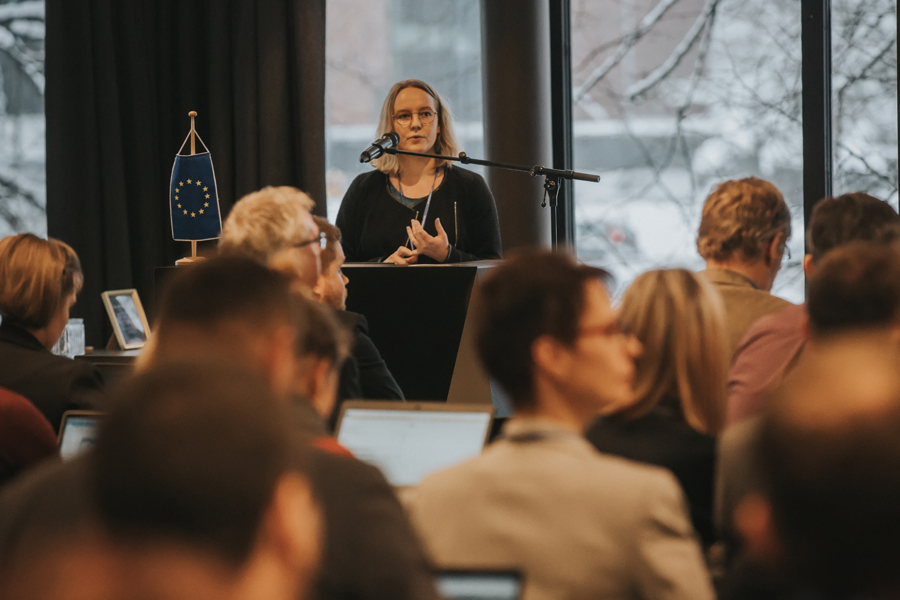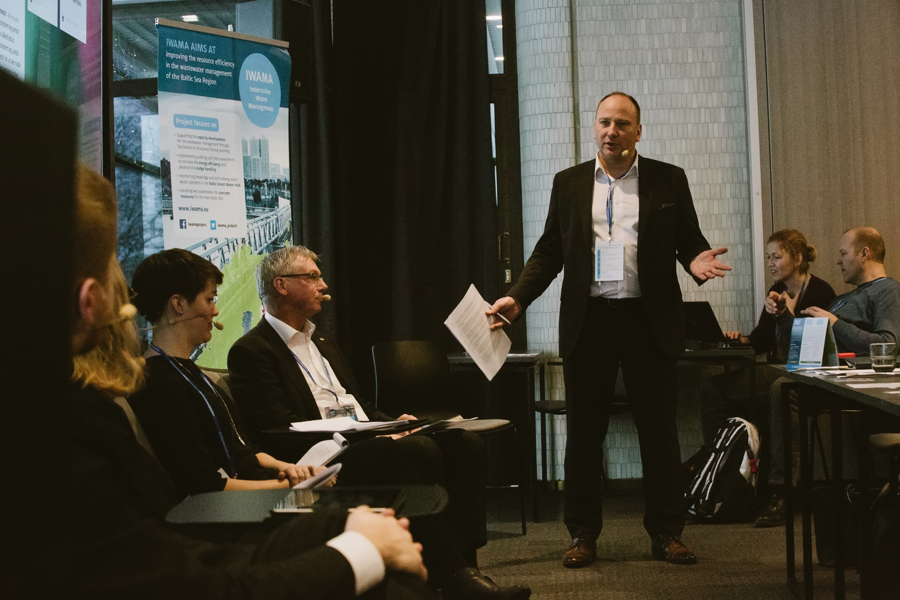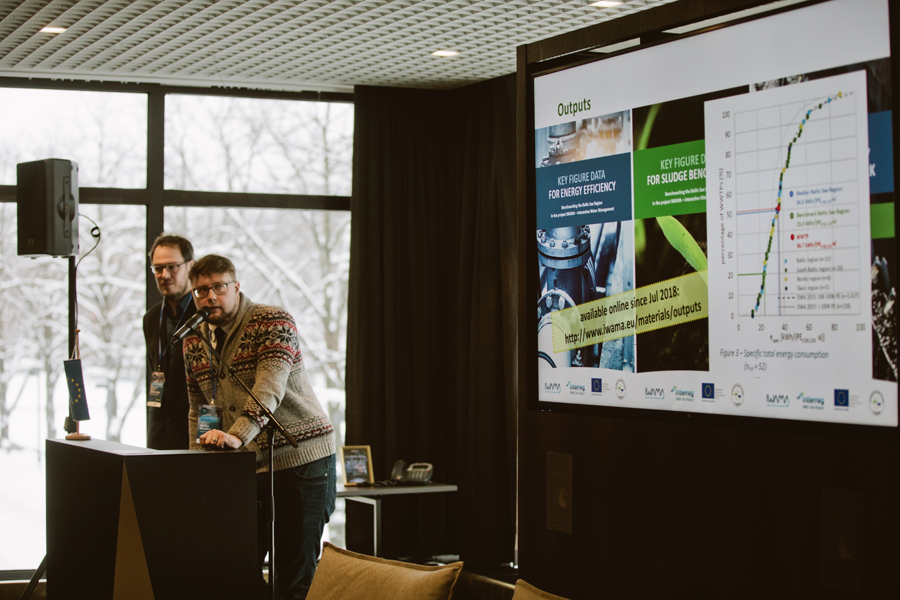In the end of January 2019 the IWAMA project oriented at improving smart wastewater treatment in the Baltic Sea Region organized its Final Conference. The event took place in Turku, hosted by the city together with our Commission. The conference brought together more than 100 participants to discuss the wastewater sector and how to make it smart and efficient.
The Final Conference continued for three days, starting with the site visit to the local wastewater treatment plant based in the solid rock of Kakolanmäki hill in the city center. The visit was accompanied with detailed presentations on the WWTP’s processes and operation, as well as on Turku’s approach to one of the current topical matters – management of hazardous substances both at the WWT facilities and at the sources.
The main conference day on 31 January opened with discussions on how decision-makers influence the development of the water sector. First speakers focused on strategic policy making introducing their vision on the cleaner Baltic Sea.
Representative from HELCOM Jannica Haldin presented the State of the Baltic Sea holistic assessment report announcing key findings on needed measures to improve its environmental status. One of the particular trends regarding eutrophication, which remains a challenge for the sea, is the ecosystem lag: while inputs of nutrients from land have decreased over time, past and current inputs still impact the overall status resulting in 97% of the Baltic Sea affected by eutrophication.
With the scene set up, Member of the Finnish Parliament Saara-Sofia Sirén concentrated on the national actions towards solving the sea’s environmental problems, since much of the national legislation is linked to the wellbeing of the Baltic Sea. Two major approaches to improving the sea’s status were highlighted in the presentation: circular economy with potential of reducing eutrophication of the Baltic Sea, and international cooperation influencing the situation through local actions and guiding regional strategies.
The stress on the importance of international cooperation in the Baltic Sea Region prevailed through the speech by Sanni Turunen, PA Nutri coordinator from the Finnish Ministry of the Environment. As PA Nutri specifically targets eutrophication, there were several actions highlighted that can help reduce nutrient inputs to the Baltic Sea, among them, more efficient management of nutrients, improving wastewater treatment and facilitation of cross-sectoral policy-oriented dialogue. Important work in this respect is done via transnational Flagship projects, among which lies IWAMA. In the context of sharpening the work on recycling of phosphorus from wastewater, Turunen also emphasized the involvement of IWAMA project in the platform BSR WATER, which focuses on enhancing continuous cross-sectoral cooperation in smart water management.
The block on strategic policy-making presentations, also including cases of international expertise from Turku and good practices on benchmarking in the water sector from the Netherlands, ended with the panel discussion aimed at the future of the water sector. The interactive panel was moderated by Björn Grönholm from UBC Sustainable Cities and supported with questions posted online by the audience.
The programme of the second part of the day focused on the project outputs and achievements in connection to the regional needs and requirements. Those can be found on the IWAMA project website, published and in the process of being translated into languages of the Baltic Sea Region. Among others, you can take a look at:
- Publication of Baltic Sea protection commitments introducing in brief all project outputs and beyond.
- Reports on regional benchmark for smart energy and sludge handling in wastewater sector. The reports support water sector professionals providing general information on the regional situation, technical details on the processes applied in the region, and supporting decision-making process, also helping to detect possible performance gaps that can be further improved.
- Materials for lifelong learning in wastewater sector including extensive report on the regional performance, interactive training materials and an exciting online WWTP game.
- Introductions to seven pilot investments in improving energy efficiency and sludge handling on WWTPs in the region.









